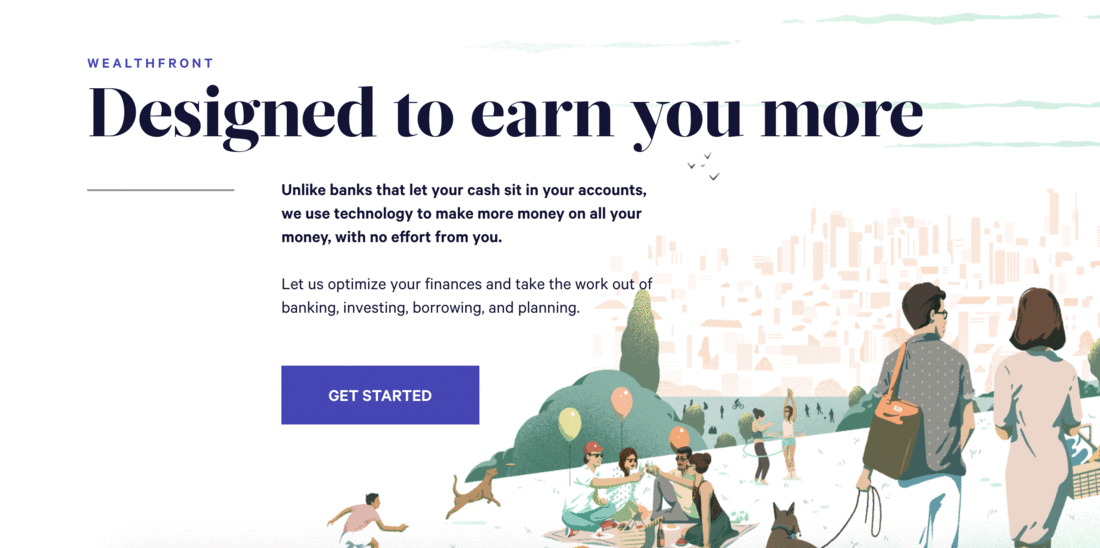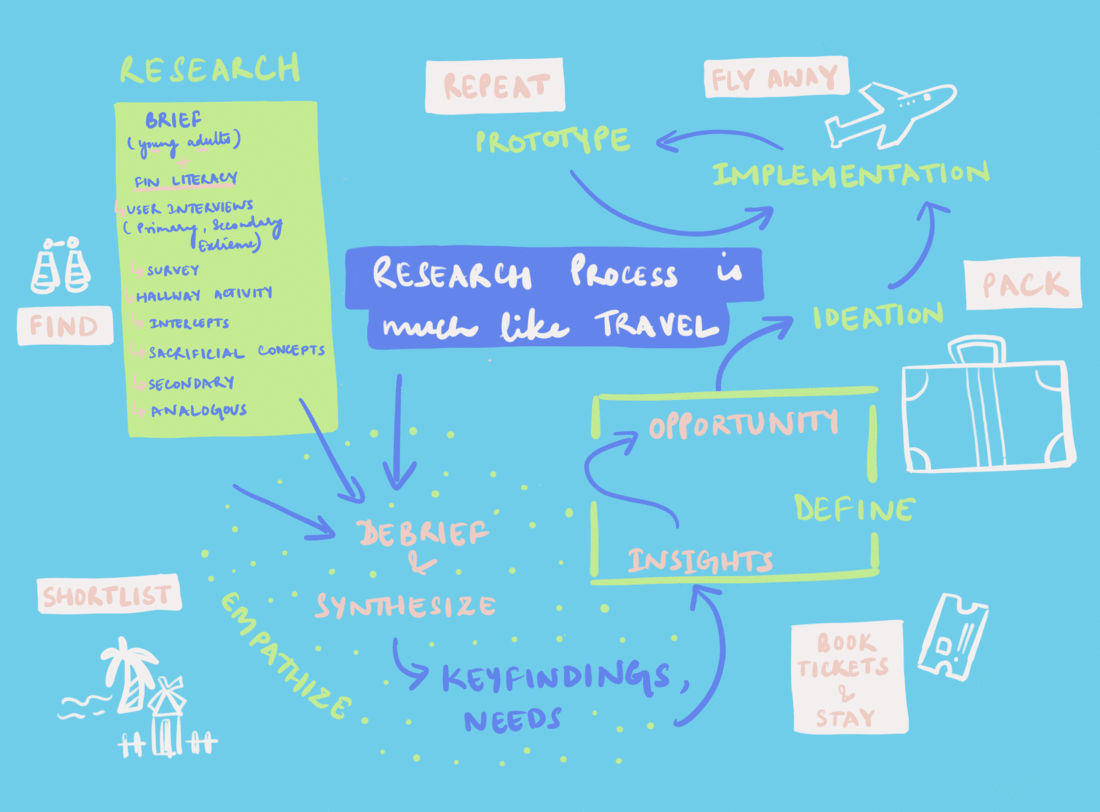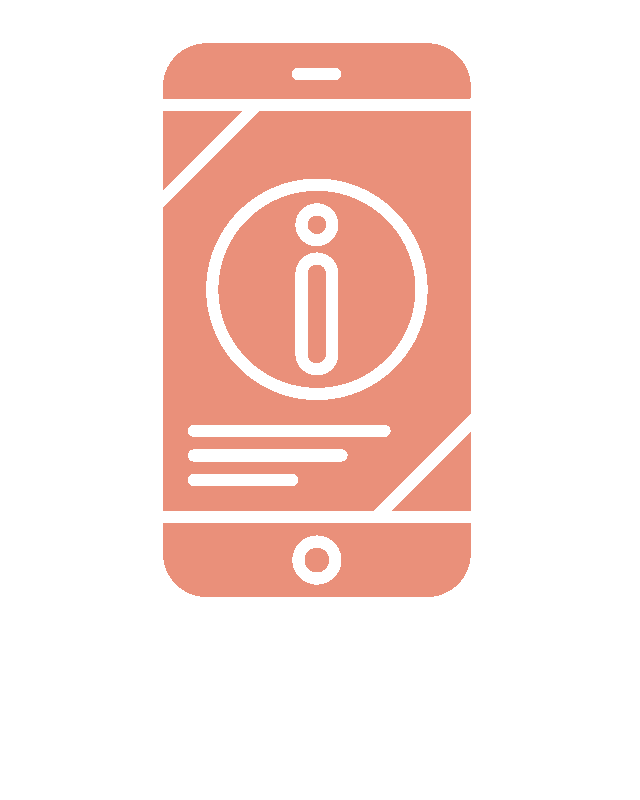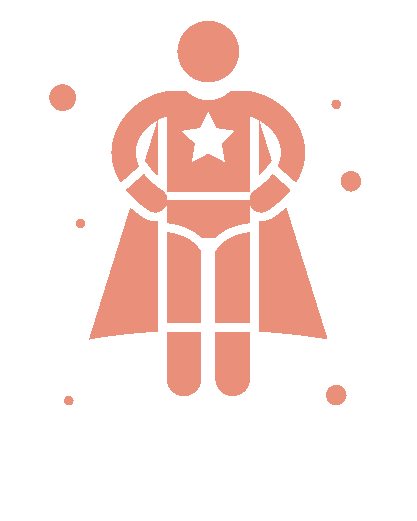
Mentor Konnect
: a platform that helps you become financially literate
MY ROLE
Research Planning
Synthesis
Storyboarding
Prototyping & Testing
Pitch Presentation
THE TEAM
THE DURATION
THE INSTRUCTOR
Fall, 2019 (8 weeks)
Minnie Bredouw (Founder, Purpose Project)
THE CHALLENGE
How might we support young adults to manage their personal finances using constant mentorship?
THE SOLUTION
Designed exclusively for 18-24-year-old young Americans, Mentor Konnect is a SaaS that can be accessed by customers of a particular investment service firm (for this project-Wealthfront). A complementary feature, it provides free access to financial knowledge by specialized mentors and the ability to connect with them for continuous guidance.
THE PROBLEM
Young people often learn about money informally through socialization, such as observing and listening to their caregivers, influential adults, and peers. Youth are not consistently introduced to more formal instruction on money matters—for example, through a classroom curriculum or other training on saving, spending, allowances, and the importance of focusing on short-term goals (i.e. purchasing an item, saving money, paying off debt) to be able to get to long-term financial goals (i.e. saving for college, buying a house).
Shim, Serido, Bosch, & Tang, 2013; Kim & Chatterjee, 2013; Danes, Rodriguez, & Brewton, 2013
"84% of Americans are struggling to save for retirement; 24% of them said they were behind because they started too late."

An illustrated collection of quotes from our user interviews
THE CONTEXT
"Deposit your paycheck with us and, with the click of a button, you can have us automate the rest. Our software can top off your emergency fund, pay all your bills, and even invest the rest to help meet your goals. We call this future Self-Driving Money™."
- Wealthfront

THE RESEARCH PROCESS

I discovered a similarity between my design process and my vacation style. A map showing how I Research (finding a place), Empathize (shortlisting the right place), Define (book tickets and accommodation), Ideate (plan on what to pack), Prototype (go for a holiday), and Implement (keep learning from past travels).
THE PLAN

INTERVIEWS:
Primary User Interviews
Secondary User Interview
Expert Interviews
ACTIVITIES:
Digital Survey
Hallway Activity
Intercepts
Sacrificial Concepts
OTHER METHODS:
Secondary Research
Analogous Research
TOOLS:
Google Suite
Slack
Miro
Pen and paper
USER INTERVIEWS

After debriefing our interviews, we grouped the key themes
“Financial information is so confusing. I wish someone could answer my questions every time I had a doubt.”
-Wilson (a 23-year-old CCA undergrad student)
“I want to know more about how to handle finances but the information should be seamless.”
-Tess (a CCA grad student)

KEY FINDINGS
-
Most people want to save and manage their finances better but do not know how to do it.
-
Financial literacy is a soft skill that needs to be learnt from another.
-
Young adults feel the need to know more about finance when it starts directly affecting them.

THE ACTIVITIES
SECONDARY RESEARCH
A report on the results of a financial literacy exam found that high school seniors scored on average 48 percent correct, showing a strong need for more comprehensive financial education for youth in high school. - Mandell, 2008; 60% was considered a passing score
A survey of a diverse group of youth and adults regarding what they wanted to learn about finance, found that concerns among youth differed within youth groups depending on their background. - Varcoe et al., 2001
78% of the American population agrees that financial literacy is an issue here. Financial literacy skills have declined for all Americans in the past decade, most noticeably for those ages 18 to 34.
THE INSIGHTS
A conversation around finance with a reliable person helps foster greater learning.
“Seek mentorship from people you trust, who are financially stable, and who can lend you time.”
-Eric Maimon (Expert Interview)


Having access to consumable and easy-to-understand information can invoke behavior change.
“I want to know more about how to handle finances but my friends don't have enough knowledge.”
-Annie (Primary User Interview)
Finding a common ground with an aspirational person can help people connect with them easily.
“It would be easy to connect with someone from the same neighborhood or who went to the same school or maybe their parents are both immigrants or perhaps belong to the same community.”
-Eric Maimon (Expert Interview)

REITERATING OPPORTUNITY

How might we support young adults to manage their personal finances through constant mentorship?
Framework
DESIGN IDEATION

Quick 5-minute brainstorming helped capture ideas on post-its (ranging from the most suitable to absolutely ridiculous 🤭)

Doodles on "what does 'saving' mean in different cultural contexts"

A whiteboard exercise to debate feasibility of a solution



We also started creating a story to pitch the idea in front of peers
My sketchnotes on potential solutions most of them using social accountability at it's core
RAPID PROTOTYPING
_edited.jpg)


Left to Right: First round of testing with low-fi prototype yielding feedback
THEORY OF CHANGE

TAKEAWAY
What worked?
Working on Mentor Konnect felt like an enriching personal experience that led to important insights about the American economy. Having moved here for grad school, I struggled to understand the system and found it surprising that the sentiments are shared by people who are born and raised in this country. It is an important subject matter and can definitely use some design help.
What could change?
Moving forward with this project, I would like to dive deeper into market research which can provide concrete information on whether organizations are interested in providing a service like this. I would also want to chalk out a detailed business model since the platform depends on third-party agreements.

